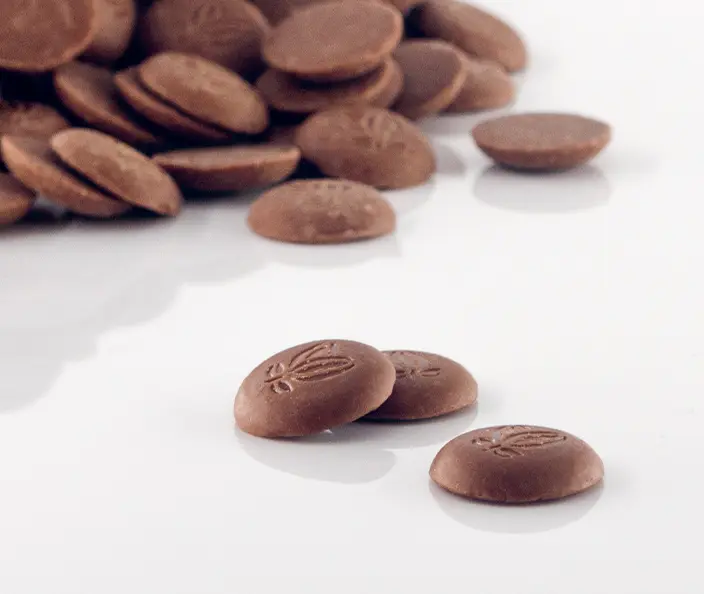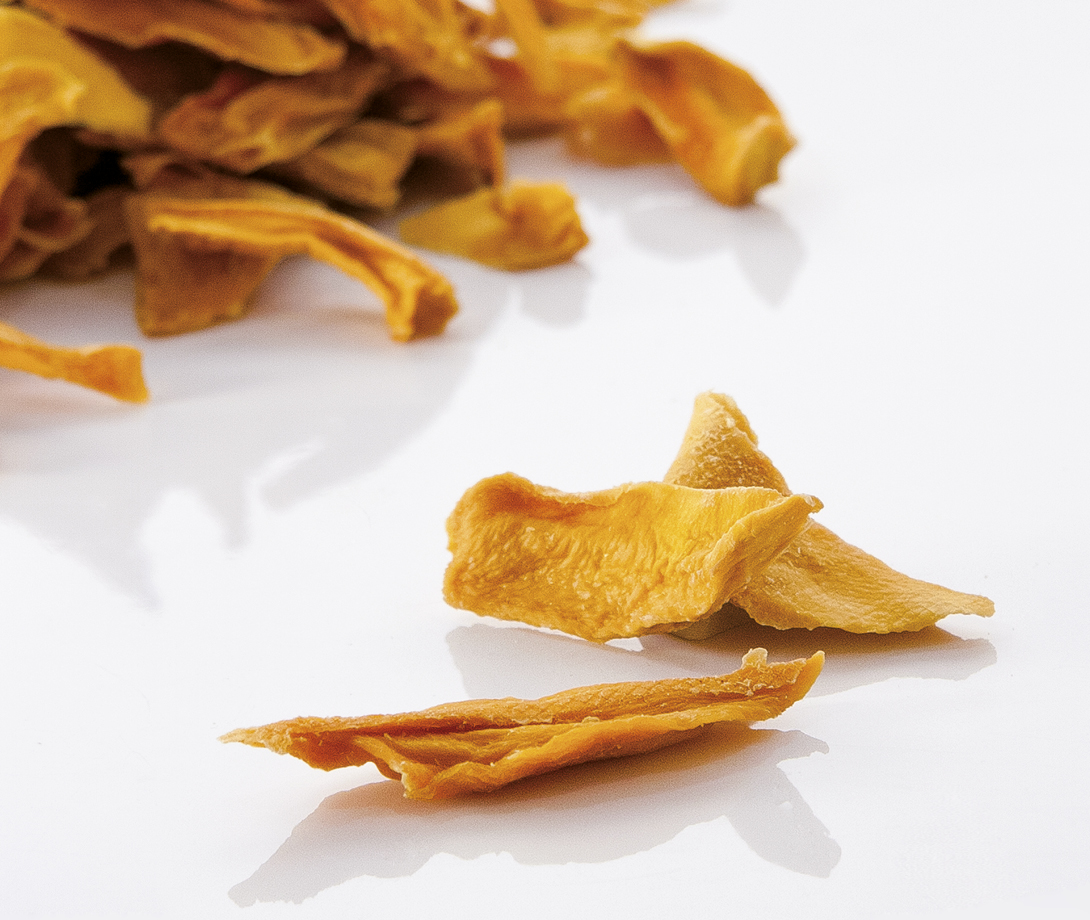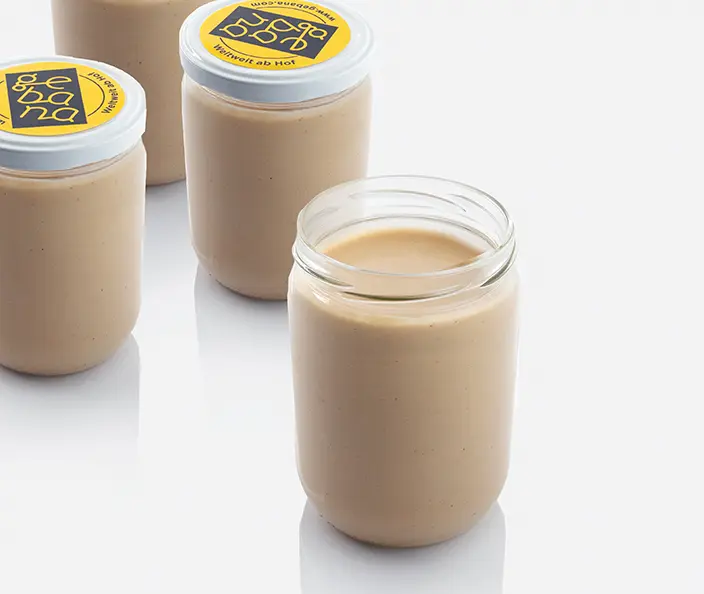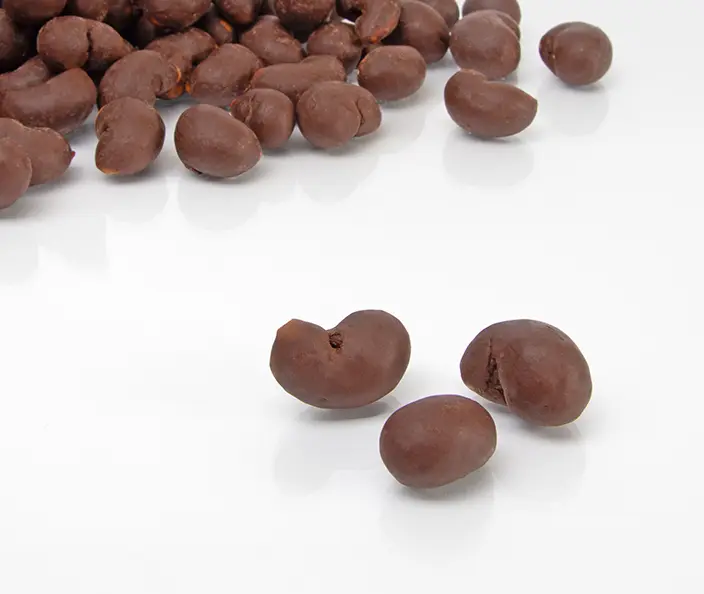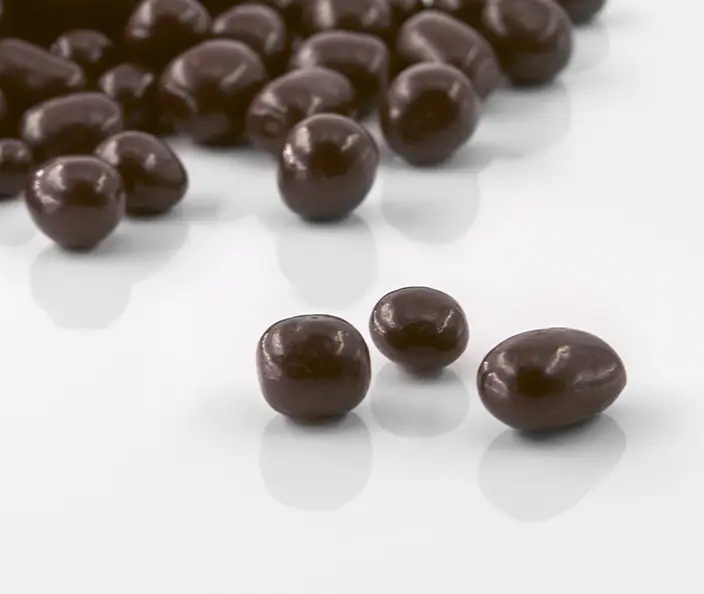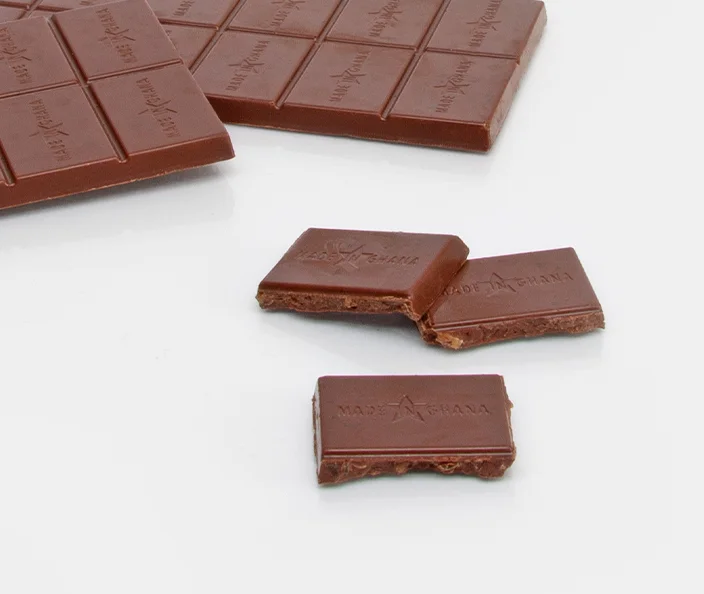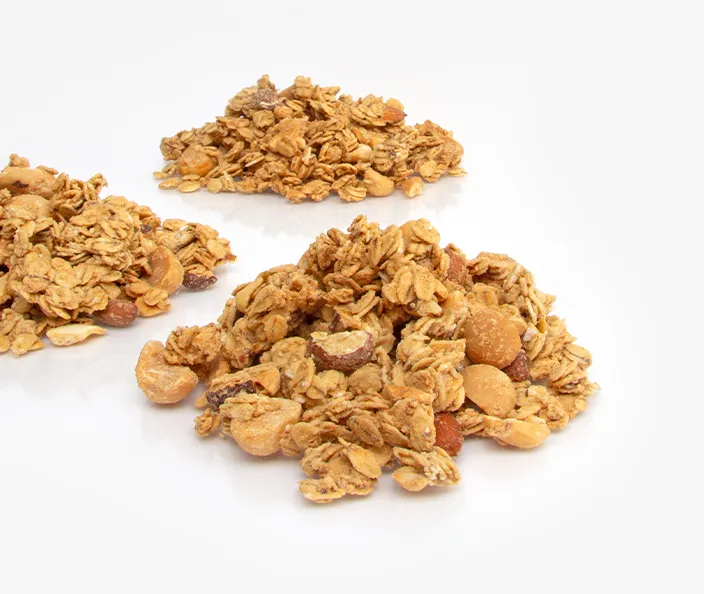Milk Chocolate
Organic
Togo
 How much is that?
How much is that?

 Use & preparation
Use & preparation
- The chocolate drops are the perfect size for baking.
- Try this recipe for almond slices with dark chocolate or enjoy your own chocolate-hazelnut spread for breakfast.
- The best way to melt chocolate is in a bain-marie. To do this, place a heatproof bowl with the chocolate drops over hot (not boiling) water and stir until they have melted. Alternatively, you can carefully pour the hot water directly over the chocolate and then pour it away again as soon as the drops have melted.
 Storage & shelf life
Storage & shelf life
| Nutrition table per 100g | |
|---|---|
| Energy | 2471kJ/590kcal |
| Fat | 41.7 g |
| thereof saturated fatty acids | 26.7 g |
| Carbohydrates | 44.5 g |
| thereof sugar | 43.6 g |
| Protein | 8.7 g |
| Salt | 0.2 g |
Ingredients: Raw cane sugar* (South America), cocoa butter from cocoa beans* (Dom. Republic), whole milk powder* (Switzerland), cocoa nibs from cocoa beans* (Togo) 10%, vanilla* (Madagascar).
Cocoa: at least 38%.
Allergy information: May contain traces of almonds and hazelnuts.
*from controlled organic cultivation
Sustainability and supply chain
AFI REBECCA ELEBLU
FARMER FROM ATIKOUTONYI, TOGO
The most fascinating thing about growing cocoa is getting the seeds to germinate.
Afi Rebecca Eleblu lives in Atikoutonyi, right next to the school. "It's very convenient because I have five children. Three of them are in school, and the other two are doing an apprenticeship." Eleblu grows cocoa for gebana on her 3 hectares of land. She also cultivates beans, plantains, ginger and corn. "They're for the local market. I have a passion for trade, and selling my products is what I like most about my job as a farmer. On the other hand, the lack of control over water causes us problems. We are afraid of droughts."

Background

Between the Trees
If you're interested in sustainable agriculture, you'll probably come across the term agroforestry at some point. This concept has the potential to restore natural ecosystems while creating new sources of income for family farmers.

 Login
Login

